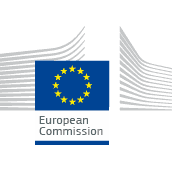
Promoting the participation of migrants in the design and implementation of integration policies
Deadline: Feb 16, 2021
CALL EXPIRED
CALL EXPIRED
Social Innovation
Social Affaires and Inclusion
Disadvantaged People
Asylum, Migration and Integration Fund (AMIF)
Aid to Refugees
Immigration Law
Violence
Migrants and Refugees
Background
In recent years, the European Commission has opened a space for discussion and consultation of civil society organisations, in particular through the European Migration Forum, as part of the increasing importance of open and inclusive policy and law-making.
Building on the pilot action “European Migrant Advisory Board” (2018-19)[1], the Directorate-General for Migration and Home Affairs of the European Commission set up a European Commission expert group on the views of migrants to advise the European Commission on policies in the field of migration, asylum and integration of migrants[2].
The European Commission Action Plan on the integration of third-country nationals from 2016[3] stresses that the involvement of third-country nationals (TCNs) in the design and implementation of integration policies is essential to improve their participation and their integration outcomes.
Indeed, increasing refugee and migrant participation in the design and implementation of integration policies is crucial for developing effective policies that are tailored to the needs of its main beneficiaries. Actively involving migrants, asylum applicants and refugees and promoting their participation in consultative and decision-making processes that concern them, can contribute to their empowerment and long-term integration into society.
It is thus clear that there is a need to support the establishment of structured and formalised ways to consult migrants regularly on policies that directly concern them. In recent years, consultative bodies of migrants at local, regional and national level have been established in several Member States; even so, important differences in the degree of direct involvement of migrants in the definition and implementation of integration policies still exist across the EU. In some Member States, migrants are involved in the design of migration, asylum and integration policies through consultative bodies at local, regional and national level, while in other Member States formal ways to consult them are still lacking. Therefore, cooperation between countries with different levels of experience can be particularly effective in this area. Furthermore, promoting the active participation of migrants in consultative and decision-making processes can contribute to their empowerment and long-term integration into society.
Objectives
The objective of this topic is to promote refugee and migrant participation in the design and implementation of integration and related policies at local, regional, national and European level.
Actions
Proposals should include one or more of the following actions (non-exhaustive list):
- Support the setting up of councils or consultative bodies of migrants at local, regional, national and EU level in close cooperation with public authorities;
- Develop innovative consultation mechanisms for migrants in policy areas that concern their inclusion and participation in host societies, e.g. education, health care, employment, housing;
- Promote the exchange of experiences between local, regional and/or national public authorities about the involvement of migrants in the design of integration policies and their implementation;
- Enhance capacity building for public authorities at local, regional or national level for efficiently consulting and involving migrants in the design and implementation of policy areas that directly affect them.
Proposals may include other actions beyond those listed above; however, they should clearly demonstrate how actions would serve to achieve the objective outlined above.
Outcomes
Proposals should focus on contributing to the achievement of the following outcomes:
- Increased participation of migrants in decision-making processes at local, regional, national and European level in the field of integration or in policy areas that are particularly relevant for integration, e.g. education, health care, employment, housing;
- Increased involvement of migrants in the implementation of policies in the field of integration or in policy areas that are particularly relevant for integration, e.g. education, health care, employment, housing, etc. at the local, regional and/or national level;
- Increased capacity of local, regional and/or national authorities to effectively consult migrants on policies that directly affect them.
Further considerations applicable to this topic
- The European Commission would welcome proposals with broad geographical scope engaging applicants from diverse regions across the EU.
- The proposed consortium should include key actors for the achievement of the proposed objectives, namely refugee and migrant organisations as well as local, regional and/or national public authorities.
Proposals should ensure specific attention to migrant women and children, especially if in potentially vulnerable situations, as well as to members of religious or ethnic minorities who could face discrimination or disproportionate obstacles to societal integration.
Public link: Only for registered users
 EC - DG - Asylum, Migration and Integration Fund (AMIF)
EC - DG - Asylum, Migration and Integration Fund (AMIF)


Please Log In to See This Section